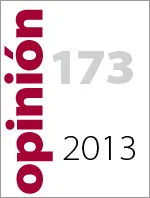Has France Started a War it Cannot Finish?

Francis Ghilès,
Senior Research Fellow, CIDOB
17 January 2013 / Opinión CIDOB, n.º 173 / E-ISSN 2014-0843
The law of unintended consequences is again on display as the French president, François Hollande, opted last week end to reverse the strategy he has pursued vis a vis the crisis in Mali since he was elected last May and go for full military intervention. The reason for such an abrupt change lies in the conviction of the French government and military leaders that the renewed offensive of the Islamist fighters, who captured the North East of Mali last spring, towards the capital Bamako had heightned the risk of affiliates of Al Qaeda in the Maghreb (AQIM) putting down even deeper roots in Mali from where they could more easily threaten neighbouring countries and western interests.
Mindful of his country’s less than honourable colonial legacy in the region, of the French tactics over decades of divide and rule leading to entrenched bitterness between the nomadic Tuareg people, the base of the current revolt, and other, notably black communities or the risk to the eight French hostages held by an assortment of Islamist/criminal gang groups in Mali and neighbouring countries, François Hollande held back. He knows however that his intervention is the consequence of the Libyan war. Tuaregs from northern Mali traditionally made up an important part of the Libyan army. As they came under attack in 2011 and early 2012, they quickly retreated to their land of origin, a wash with weapons from Libya’s armoury and keen to fight for their old dream of independence.
These Tuaregs, regrouped in the National Movement for the Liberation of the Azawad, were however pushed aside by other Islamist jihadist groups who resorted to violence and terror to impose their authority on the towns they conquered. In Timbuktu, they set about destroying the Sufi shrines for which this old city was famous. For generations, Wahabi money in the form of wealthy Saudi donations has been spreading a harsh form of Islam totally alien to the region. The same destruction of Sufi shrines is happening in Tunisia, in the heart of the capital Tunis where the government seems to be incapable or unwilling to face up to the thugs who threaten women and destroy Tunisia’s history.
European reaction to France’s intervention has been cautious. The British Prime Minister said there will be “no boots on the ground” but sent two RAF cargo planes to help the French. Germany might participate in a mooted EU training mission but “the deployment of German troops is not up for debate” opined the foreign minister Guido Westerwelle.
The German minister is a keen promoter of arms shipments to Russia, Saudi Arabia and Egypt. But since his country’s refusal to support the war waged by the West and its Arab allies against the former Libyan dictator, the Germans are seen as shirkers. The country’s extreme caution about where it exported its weapons, notably in the Middle East has changed in recent years and Angela Merkel has shown a preference for sending high tech armaments abroad, even if that means doing business with questionable regimes. Former Chancellor Helmut Schmidt is scathing about present day German policy. It is thus no accident that Algeria should have become one of Germany’s strategic partners where the export of weapons is concerned. It borders on Libya and Mali and both the US and the UK would like to see it become more of a bridgehead in the fight against Islamic terrorism. All the more as Algerian intelligence is deemed to have infiltrated AQIM. Algeria ranks eighth as a beneficiary of German export permits.
But what of the most powerful country in the West, the US? French strikes have done away with US caution in Mali. For years the US has conducted a very ambitious counterterrorism program with the aim of stemming the spread of Islamic militancy, spending between $520 and $600m to this effect over the past four years alone. Spreading from Morocco to Nigeria, US officials explained the Malian military were an exemplary partner. Imagine their dismay when an American trained officer overthrew Mali’s elected government in March 2012 thus setting the stage for half the country falling into the hands of Tuareg insurgents and Islamist fighters who ended up capturing the Tuaregs agenda. Spy planes and surveillance drones have not enable the US to get a detailed picture of the forces they are up against. A report for the Pentagon’s Africa Command last July concluded that the coup had unfolded too quickly to intelligence analysts to detect any warning signs but as the head of the US Africa Command, General Carter Ham admitted: “ There is no way to characterise that other than wholly unacceptable.” Indeed, what is the point of spending half a billion of dollars from American tax payer’s money if you cannot even surmise what the possible consequences of toppling Gaddafi might be? Complacency and hubris are a more likely explanation but “humint” - human intelligence, is scarce and nobody wanted to listen to those with more experts on the region such as the International Crisis Group, who called wolf.
France has not shown the patience necessary to build up an ad hoc coalition of the willing to support its action in Mali: a sense of urgency, the call from a scarcly legitimate government in Bamako and the pledge for “war on terror” have proven sufficient to assume the endeavor. As always, internal politics did the rest. Let us hope it can “finish” the war, whatever that may mean in a broken state like Mali, quickly.
Francis Ghilès,
Senior Research Fellow, CIDOB